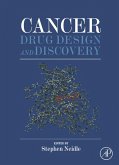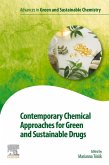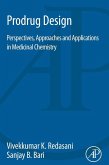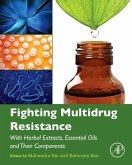This comprehensive coverage of the design and development of improved analogues to overcome the problems of resistance and toxicity associated with third generation EGFR inhibitors makes Third Generation EGFR Inhibitors a crucial resource for medicinal chemists, drug developers, and researchers investigating cancer therapeutics.
- Includes full synthetic schemes of all approved and in-trial third generation inhibitors
- Highlights the emergence of fourth generation EGFR inhibitors and the possibilities of them overcoming constraints of third generation compounds
- Provides a structural correlation of third and fourth generation EGFR inhibitors, reviewing both their design strategies and typical anticancer activity
Dieser Download kann aus rechtlichen Gründen nur mit Rechnungsadresse in A, B, BG, CY, CZ, D, DK, EW, E, FIN, F, GR, HR, H, IRL, I, LT, L, LR, M, NL, PL, P, R, S, SLO, SK ausgeliefert werden.









